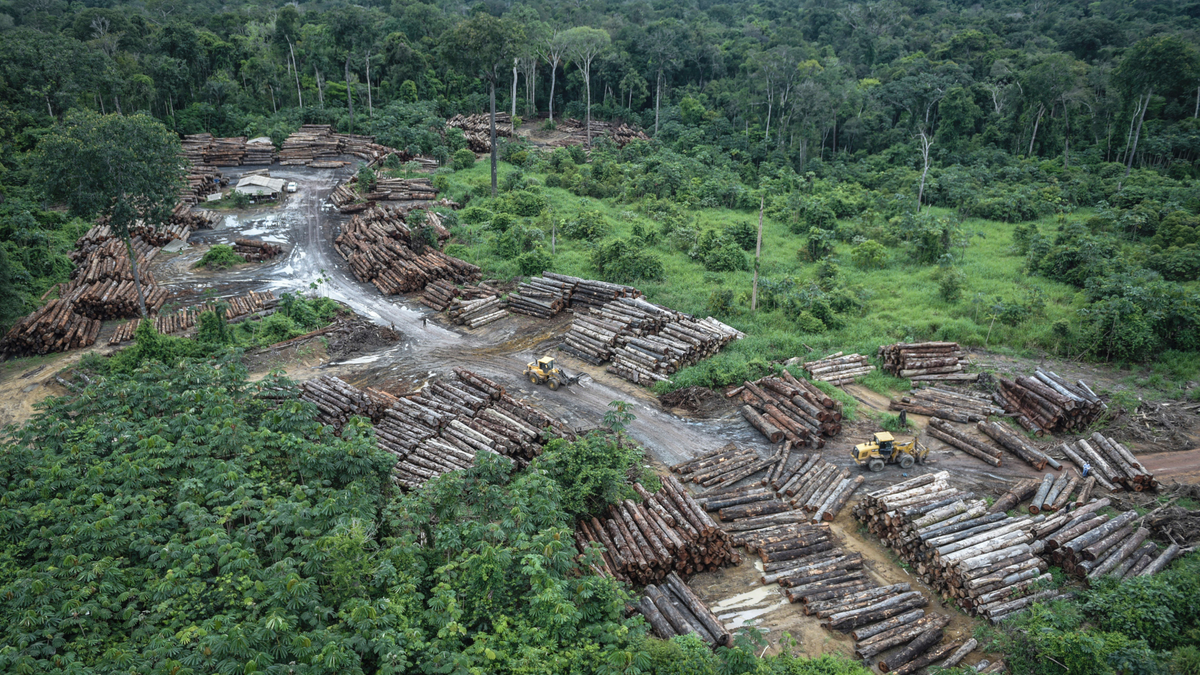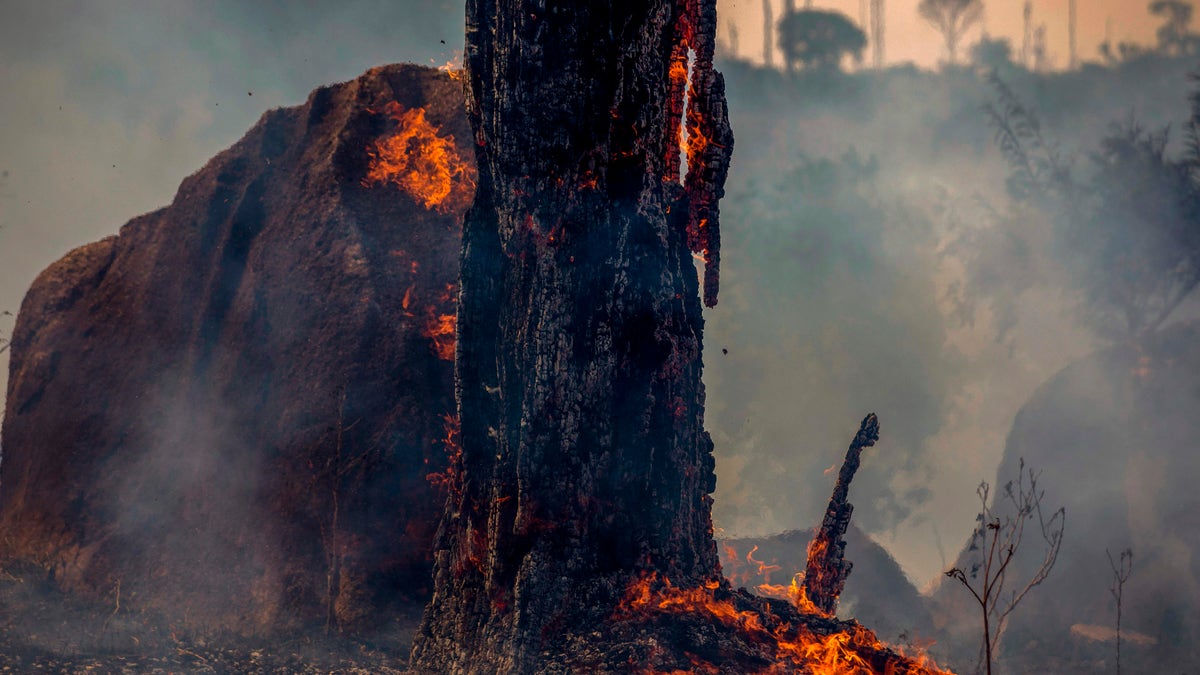Al Gore compares climate crisis to 9/11 terrorist attacks
Reaction from 9/11 first responder Dr. Oscar Odom.
The world's tropical forests are losing their capacity to absorb carbon dioxide, according to a new environmental study, raising alarms about the prospect of accelerating climate breakdown.
The study, which was published Wednesday in the scientific journal Nature, found that tropical rainforests around the world that have been untouched by logging or other harmful human activity are losing their ability to absorb carbon.
HOUSE GOP'S ENVIRONMENTAL PROPOSALS FOCUS ON CARBON CAPTURE, SEQUESTRATION, AND TREE-PLANTING
An international consortium of European and African scientists -- led by the University of Leeds -- examined more than 300,000 trees over the course of the last three decades in the Amazon and the African tropics.
The scientists used aluminum nails to tag individual trees, measuring the diameter and estimating the height of every tree within 565 patches of forest, and returning every few years to repeat the process. This enabled them to calculate the carbon stored in the trees that survived and those that died.
They found that tropical forests are now taking up a third less carbon than was previously measured in the 1990s.

This May 8, 2018 photo released by the Brazilian Environmental and Renewable Natural Resources Institute (Ibama) shows an illegally deforested area on Pirititi indigenous lands as Ibama agents inspect Roraima state in Brazil's Amazon basin. Scientists warn that Brazil's President-elect Jair Bolsonaro could push the Amazon rainforest past its tipping point by loosening environmental protections, with severe consequences for global climate and rainfall. (Felipe Werneck/Ibama via AP)
Data provided in the study presents the first large-scale evidence that some sites in the Congo Basin of central Africa showed signs of weakened carbon uptake as early as 2010, according to the Washington Post, suggesting that the decline in Africa may have been underway for around a decade.
The Amazon sink started weakening first, but African forests are now rapidly following suit, the Guardian reported. Amazonian forests are exposed to higher temperatures, faster temperature increases, and more frequent and severe droughts than African forests.
The researchers predicted that in 10 years the African jungle will absorb 14 percent less carbon dioxide than it did 10 to 15 years ago.
Additionally, they said that by 2035 Amazonian trees won’t absorb any carbon dioxide at all. And, by the 2060s, the typical tropical forest may become a carbon source due to wildfires, deforestation, and excess greenhouse gas emissions pumped into the atmosphere.
These projected forecasts in how forests will store carbon up to 2040 are based on observations, a statistical model, and trends in emissions, temperature, and rainfall.

View of a burnt area of forest in Altamira, Para state, Brazil, in the Amazon basin, on August 27, 2019. - Brazil will accept foreign aid to help fight fires in the Amazon rainforest on the condition the Latin American country controls the money, the president's spokesman said Tuesday. (Getty Images)
Tropical forests will “add to the problem of climate change, rather than mitigating against,” wrote Simon Lewis, an ecologist at the University of Leeds and one of the paper’s co-authors.
However, Lewis' findings notably contradict models used by the Intergovernmental Panel on Climate Change (IPCC) and governments around the world, which predicted that the Congo Basin rainforest would continue to absorb carbon for many decades to come.
Skeptics have largely dismissed fears over man’s impact on global warming, saying climate change has been going on since the beginning of time. They also claim the dangers of a warming planet are being wildly exaggerated and question the impact that fossil fuels have had on climate change.
CLICK HERE FOR THE FOX NEWS APP
At this year’s UN climate talks in November, many countries are expected to come forth with plans to reach net-zero emissions by mid-century. But, some rich countries — like the United States — and many companies plan to reduce their emissions via offsetting, often by preserving, replanting or growing new forests.
The research nonetheless shows that relying on tropical forests is unlikely to be enough to offset large-scale emissions.
“We’ve found that one of the most worrying impacts of climate change has already begun,” said Lewis.
“This is decades ahead of even the most pessimistic climate models,” he concluded.
Nature, The Guardian, and The Washington Post contributed to this report.










































